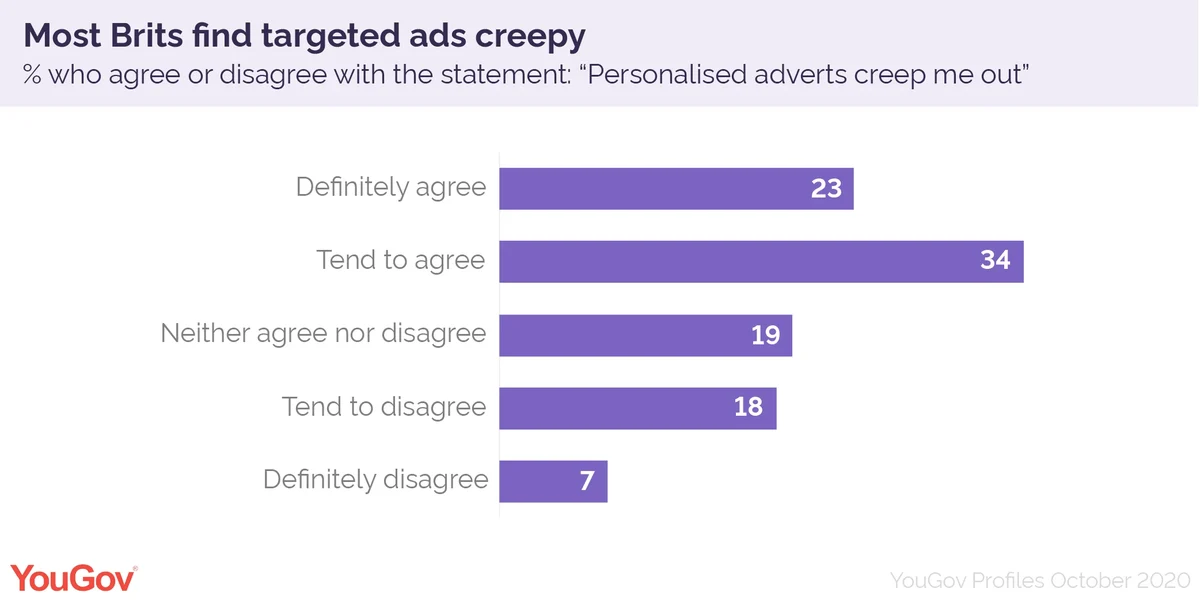
Most Brits think targeted ads are creepy
People who feel especially strongly about personalised ads are generally more distrustful and have a more negative outlook on technology
Nearly three in five (57%) people either tend to (34%) or definitely (27%) agree that personalised ads ‘creep them out’.

Britons who ‘definitely’ feel uneasy about targeted promotions generally display lower levels of trust and are more sceptical of technology. A majority (58%) distrust the people and organisations they perceive to be most powerful in society. This is much higher than among the general population (47%).
A quarter (24%) believe technological and social change in the next two decades will impact them negatively, compared with just under a fifth of all Brits (18%). Nearly two in five (37%) also say technology will make communities less connected – seven points above the wider public. And a fifth (20%) even say it’s a force for bad, which is also higher than among all Brits (15%).
This kind of scepticism characterises many of their attitudes. Brits who are uncomfortable with personalisation are more inclined to think ads are waste of time (55% vs 41%), that banks try to trick people out of their money (46% vs 35%) and that weddings are a waste of cash (49% vs 41%).
Demographically, people who are ‘definitely’ creeped out by targeted ads are often millennials (38% vs 30% of the wider population). Over a third (36%) finished education at the age of twenty or later, which is six points above the national average – and they are slightly more left-leaning than the wider nation at 33% vs 28%.